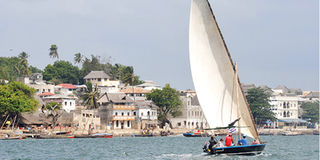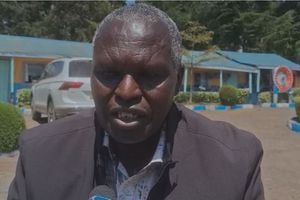Heritage sites spared in port plan

Photo/FILE
The port of Lamu.
The construction of the multi-billion shilling Lamu port will not interfere with heritage sites, the government clarified on Monday.
Speaking during a press conference, the Infrastructure secretary in the Office of the Prime Minister Silvester Kasuku said that there was a misconception that the state would tamper with heritage sites as it implements the project, which has caused panic among Lamu residents.
He reiterated that all tourism areas had been cordoned off and the construction of the port will not affect any of the sites.
“The port is located at Kilelana not Manda Bay as some people are speculating,” said Mr Kasuku.
Some of the areas cordoned off, he said, were heritage areas, fragile ecosystems and major tourist attractions such as the Manda area.
Preparations for the ground breaking ceremony and the launch of the country’s second sea port to be held on March 2 are ongoing.
The Lamu Port-South Sudan-Ethiopia, Transport and Economic Development Corridor (Lapsset) project will be implemented at a cost of Sh2 trillion and is so far the largest project of its kind in Africa.
Each country will contribute money depending on how the project directly benefits them. According to Mr Kasuku, the construction of the port is also expected to inject between two to three per cent of the gross domestic product (GDP) into the economy.
It will kick off with the construction of the initial three out of the planned 32 berths.
The port will be three times the size of the current port of Mombasa. The government has positioned the port as a trans-shipment hub to handle both crude and refined oil and oil products from South Sudan.
According to Vision 2030 Board director general Mugo Kibati, Kenya has already signed an agreement with South Sudan to build an oil pipeline from Juba to the port of Lamu. It will be complete in 18 months.




